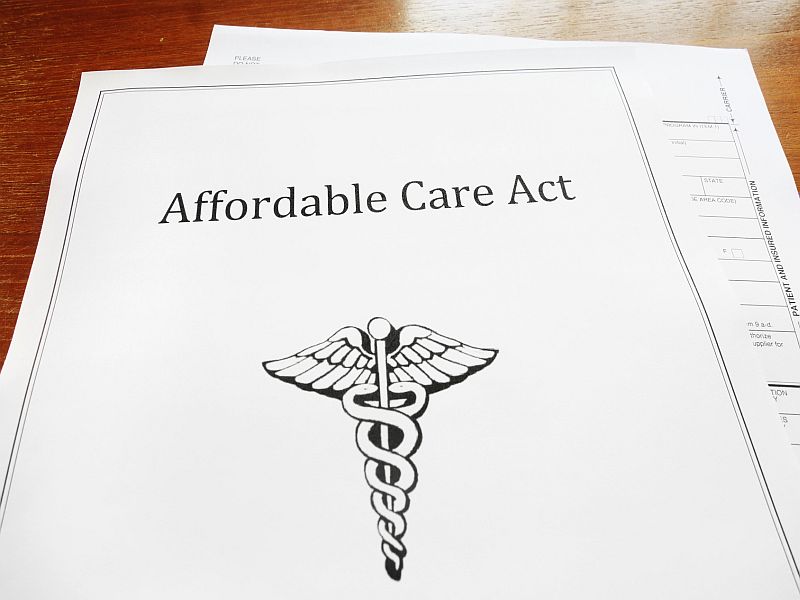Manténgase sano!

- Posted January 10, 2020
Obamacare May Have Prevented Many Opioid-Related Deaths
The Medicaid expansion brought in by Obamacare may have prevented thousands of deaths from opioid overdoses, a new study suggests.
Researchers found that in U.S. states that expanded their Medicaid programs under the Affordable Care Act, fatal opioid overdoses dipped by 6%, compared to states that opted out. That included an 11% lower death rate from heroin overdoses, and a 10% lower rate from synthetic opioids, like illicitly made fentanyl.
"It's exciting to see a decrease in deaths from heroin and synthetic opioids," said lead researcher Magdalena Cerda, an associate professor at NYU Langone Health in New York City.
The national opioid epidemic began with widespread addiction to, and abuse of, prescription painkillers such as OxyContin, Vicodin and Percocet. But in recent years, heroin and illegally manufactured versions of the painkiller fentanyl have become particular concerns -- driving the majority of opioid overdose deaths nationwide.
When it comes to treating opioid addiction, the recommended approach involves any of three medications: methadone, buprenorphine and naltrexone.
But many Americans do not get that treatment for various reasons, including a lack of providers prescribing the medications, and cost.
The new study does not prove that Medicaid expansion allowed more people to get treatment for opioid addiction -- and, in turn, saved lives.
But it's a "likely reason" for the findings, Cerda said.
Under Obamacare, states could opt to expand eligibility for their Medicaid programs; a requirement was that they cover substance abuse treatment.
Past research, Cerda said, has found that more people went into treatment for opioid dependence following Medicaid expansion.
A study published last year looked at what happened after West Virginia widened its Medicaid program in 2014. The state has been particularly hard-hit by the opioid epidemic -- with an overdose death rate more than triple the national average, according to government figures.
After expansion, the study found, more West Virginians who were newly eligible for Medicaid went into treatment for opioid addiction. By 2016, three-quarters of patients with opioid dependence had been prescribed buprenorphine. That compared to less than one-third in early 2014.
The new findings, Cerda said, "help answer the next logical question: Did overdose deaths decline after Medicaid expansion?"
Her study -- published Jan. 10 in JAMA Network Open -- is based on data from U.S. counties for 2001 to 2017. By the end of 2017, 32 states and Washington, D.C., had expanded their Medicaid programs.
During the study period, there were just over 383,000 deaths from opioid overdoses nationally. The rate shot up over time -- from about 2.5 deaths per 100,000 Americans in 2001, to almost 11.5 per 100,000 in 2017.
Counties in states that expanded Medicaid, however, saw a decline in overdose deaths, compared to non-expansion states. The exception was in deaths related to methadone, which ticked upward.
Cerda said that's unlikely due to methadone treatment, which is a proven way to address opioid addiction. Instead, she said, past studies have found that Medicaid patients have high rates of methadone prescription to treat pain -- a use associated with a greater overdose risk.
On balance, Cerda's team estimated that Medicaid expansion may have prevented between 1,678 and 8,132 opioid overdose deaths from 2015 to 2017.
"It's fair to infer that mortality rates were lower in counties that expanded Medicaid because there was greater access to treatment," said Lindsey Vuolo, director of health law and policy at the nonprofit Center on Addiction in New York City.
"Medicaid plays a critical role in increasing access to addiction treatment," said Vuolo, who was not involved in the study.
"It's not at all surprising that increasing insurance coverage -- and thereby making health care more accessible and affordable -- would result in fewer people dying from a preventable and treatable disease," she said. "Expanding insurance coverage saves lives."
In recent years, Republican leaders have repeatedly vowed to repeal the Affordable Care Act. But Cerda said the new findings add to evidence that the law's Medicaid expansion has made a dent in the opioid crisis.
"To me," Cerda said, "this suggests that measures to expand access to evidence-based treatment are effective."
Every day in the United States, an average of 130 people die of an opioid overdose, according to the U.S. National Institute on Drug Abuse. In 2017, opioids claimed the lives of 47,600 Americans -- driven in large part by a sharp increase in overdoses from fentanyl and other synthetic opioids.
More information
The U.S. National Institute on Drug Abuse has more on treatment for opioid addiction.
SOURCES: Magdalena Cerda, Dr.Ph., M.P.H., associate professor and director, Center for Opioid Epidemiology and Policy, NYU Langone Health, New York City; Lindsey Vuolo, J.D., M.P.H., director, health law and policy, Center on Addiction, New York City; JAMA Network Open, online, Jan. 10, 2020
